E pluribus unum
E pluribus unum
By Mark Rus, Delix Therapeutics
“The talent and tenacity of immigrants can help drive the life sciences industry into the future, if we have the will and wisdom to encourage it.”
I wrote those words in 2019 in “Opening the Golden Door,” an article about immigrants in the life sciences.1 If anything, the potential benefits to our industry (not to mention economy and society) that come from foreign-born talent have only grown since then. According to the American Immigration Council, immigrants made up 23.1 percent – nearly a quarter – of all STEM workers in the United States in 2019, an increase from 16.4 percent in 2000. The raw number of immigrant STEM workers more than doubled in that time, from 1.2 million to 2.5 million. Immigrants today are more likely than native-born Americans to obtain patents, and they are accounting for rising shares of new U.S. patents in, among other things, medical devices and pharmaceuticals. At last count, 43.8 percent of the current Fortune 500 were founded by immigrants or the children of immigrants, a slight increase from where we stood four years ago. The Nobel laureate economist and New York Times columnist Paul Krugman recently provided a great summary of the positive impact immigrants may be having on the U.S. economy right now, given their lower old-age dependency ratio.2 See the list of additional resources for pieces that offer more context and evidence. In short, the evidence supporting the case made in 2019 has only grown stronger over the past four years.
Reasonable people may disagree about the ins and outs of the multifaceted and complex U.S. immigration system. Many factors must be considered when deciding how to create a fair, secure, humane, efficient, and ultimately successful immigration policy that supports our country’s economic and geopolitical priorities. One point on which we all should agree, though, is the assertion that immigrants are a crucial part of this nation’s past, present, and future economic and cultural vitality. This is clearly the case for everything from service and agricultural workers all the way to the tech, biotech, and related high-science and innovatory components of the economy.
Within the larger landscape of immigrants in the life sciences here in the United States are any number of individual stories, each of which casts its own beam of light on how and why immigrants have contributed so much to our biotech industry, and will continue to do so. As someone who’s been a leader at a large pharma and private company co-founder myself, I’ve had the opportunity to work with many immigrants. I’ve asked a few of those immigrant leaders at the company I’m fortunate to be CEO of, Delix Therapeutics, to share their personal stories. These people, my colleagues, came here from all over the world, bringing with them a wide variety of skills and talents and perspectives, but their stories share four common threads.
- Thinking and seeing things differently
- An appetite for risk and the resilience to persevere through challenges
- Gratitude for the opportunity to work hard and contribute
- Adaptability
While reading these stories, I’m sure you will recognize parallels to your own or your friends’ or colleagues’ stories. Together, let’s ensure that we think about how immigrants can continue to impact the success of our industry and others, and how we can advocate for and support the next generation of foreign talent.
Thinking and seeing things differently
Milan Chytil, Ph.D., medicinal chemistry, Delix Therapeutics: I grew up in the former Czechoslovakia. When communism fell in 1989, I was about 18 at the time, finishing high school, so I started looking at studying abroad. Europe was the closest. Russia used to be very popular but it was no longer a requirement. I ended up starting college in the Czech Republic but then I discovered this amazing scholarship in chemistry for Czech students. The benefactor who set up these scholarships, Alfred Bader, grew up in the Czech Republic in Bohemia, but because he was of Jewish descent, he had to leave before World War II started, and he ended up in Canada where he started a company, Sigma-
Aldrich, which became very successful. He wanted to give back, so he set up fellowships or scholarships for students at Harvard, Columbia, [and] University College London, and it was open to Czech students on a preferential basis. They started sending booklets to various Czech universities; at the time, there were only three. I saw the booklet and I spoke with one of my professors who was my mentor and advisor and said, “Well, this is a crazy idea, but should I apply?”
Enith Morillo, QA consultant: I came to the U.S. by myself at the age of 15 as a full scholarship recipient of the Galileo Program of the Venezuelan foundation, Fundación Gran Mariscal de Ayacucho. As one of about 250 students selected from more than 10,000 nationwide, I was given the opportunity to pursue higher education studies in the U.S. and chase the promise of a better future. It was quite challenging to be away from my family in a foreign country where I couldn’t speak the language. This was in the early 1990’s, so communication with my family was limited to a weekly call through the hallway phone in the dorm at the boarding school I was placed to learn English. I still remember my first class being weaving, since it required very little talking!
Rajiv Agrawal, Ph.D., pharmacology, Delix Therapeutics: I come from India originally; my undergraduate studies in India were in the pharmaceutical sciences. But I could see that the opportunities were much greater in the United States. The discovery and R&D programs were better, the educational and academic programs were better. The research and development in the United States were and are unparalleled; where I came from that wasn’t the case – research and innovation are not a top priority in India. So I applied and in 2007 I was accepted at Texas Tech University to study biomedical sciences.
Eliseo Salinas, M.D., head of R&D, Delix Therapeutics: I was born in Argentina and went to medical school there. The early 1980s were difficult years in Argentina. There were a number of military dictatorships. It wasn’t fun, and so I wanted to leave the country to do my training abroad. My father was from Paraguay, but he was a political exile and couldn’t go back. He was always lamenting about that, missing his homeland. So when I left Argentina to go to France, I told myself, “I’m not going to be like that. I’m going to go, get trained, and then come back to the homeland.” But when I went to Paris, I discovered this whole different breed of people, immigrants from all over the world, Russians, Poles, Germans, Americans, even Argentinians, who had lived in Paris for decades and basically became locals. They knew everything about the social life in Paris, where to buy the best bread, all the little secrets. They spoke perfect French with accents from wherever they came from, and they were happy. That experience made me appreciate the position of the immigrant; when you are from a different land, you see things that the “natives” might not see. I enjoyed it so much that after a few years, I decided that, no, I would not be returning to Argentina.
Paul Vancutsem, D.V.M., Ph.D., toxicology and DMPK, Delix Therapeutics: My family is from Waterloo in Belgium, where the famous battle took place. We’d been there for 500 years. I wanted to be a veterinarian, so I went to vet school, got my degree, and discovered that I didn’t have enough money to start a practice. So I looked into getting a Ph.D. and found out that I would need a fellowship to do it. There wasn’t much money in Belgium for science or research, so I started looking in other countries. At that time, to get a fellowship in the UK, I needed to be British; to get a fellowship in France, I needed to be French; to get a fellowship in Germany … you get the idea. But to get a fellowship at Cornell University, all I had to do was get a GRE score of 800, and that I could do! So I came to the United States to do my Ph.D. Before I left Belgium, I remember going to a family function, and my uncle who was working for a U.S. company slapped my back and said, “The American!” I told him, “No, no, I’m still Belgian, I’m just going to get a Ph.D. and come back.” And he said, “Yes, the American!” He knew that I wouldn’t be coming back.
An appetite for risk and the resilience to persevere through challenges
Chytil: To get the scholarship I had to pass TOEFL, the Test of English as a Foreign Language. And then I had to take the GREs like any other American graduate student. So I had to learn English really fast. I learned it by memorizing the dictionary; I made it all the way to “L”! On the bus back and forth to English classes I’d read the dictionary, write it down, memorize it. And I’d listen to CNN. I would record it and listen to it several times until I understood every word because, to a non-native speaker, the anchors use complicated special words that you may not hear in daily language, but that was very helpful because I heard American English. When I took the GREs, I did really well in chemistry, math, and physics – not so well in English. But I was accepted as a graduate student at Harvard, to study organic chemistry. And once I was there, I knew I wasn’t going back to the Czech Republic. The opportunities here in the United States were so much bigger and better.
Morillo: From a young age, I always wanted to be an engineer. When I came to the U.S., I majored in electrical and biomedical engineering at Worcester Polytechnic Institute. However, shortly after graduating with a Masters, my visa expired, and I was unable to work. It took almost a decade after graduation for me to be able to enter the workforce, which required grit, resourcefulness, and perseverance. I had to start somewhere so I joined the Biotechnology certificate program being offered by the local community college, which allowed me to land my first position in the industry as a manufacturing temp in a local biotech. This gave me the foot in the door I needed. I was eager to make up for “lost time,” so I always worked hard and invested in my professional development. I benefited tremendously from mentors and coaches along the way that saw my eagerness to learn and prove myself.
Agrawal: I had to be away from my wife and son for nearly two years, from when my son was six months old to when he was nearly two and a half. That was part of the price we had to pay to be here, and to bring them here. But I paid it, and others would pay it too, gladly. So many talented and motivated people all around the world, they aspire to come to the United States. They just want to work hard and raise families and contribute.
Salinas: Fifteen years ago my company was asked to send someone to the U.S. Congress to testify about one of our products. I was the most qualified person to answer the questions they’d be asking, but the company didn’t send me. So I asked why, and our chief counsel told me, “We don’t want to send someone with an accent to Congress.” I thought that was silly, and I left that company not long afterwards. But today I don’t see that happening very often. The culture in U.S. pharma today doesn’t have an issue with companies being represented publicly by someone with an accent, or someone with an accent being in a corner office or on the board. Talent and qualifications and performance are outweighing the old stereotypes, as they should.
Vancutsem: During the course of my career in pharma and biotech here in the United States, the perception of immigrants really has changed. When I first got my Ph.D., I applied to a number of companies and got a lot of positive responses, until they found out that I didn’t have a visa or the proper paperwork yet. But today companies are much more open. They’ve seen what immigrants can bring to the table, how they are willing to turn their lives upside down and fight for every opportunity. And so now companies aggressively seek out foreign talent, help them, sponsor them for visas. U.S. pharma and biotech companies have really recognized how crucial it is to seek out the very best talent, even if it means having to deal with the immigration authorities to get it.
Gratitude for the opportunity to work hard and contribute
Chytil: Learning English, I had to re-learn a lot of chemistry because when I was at Harvard there were a lot of smart people, really smart people. So, if you want to keep up with them, not even compete but just keep up with them, you have to re-learn a lot of chemistry in English, which I had done before as well but I had only one textbook that was English. Here, there was a virtually unlimited number of textbooks in English. Whatever subject, just go to the library or buy it in a bookstore and it’s there. I was learning from a fire hose. In the Czech Republic, there might be one book that I could find in a bookstore that happened to be English in chemistry because it’s a niche subject. Most people will not want to read a book in chemistry in English in the Czech Republic. But there was also a cultural difference. Everyone was so friendly here. I felt that everybody I talked to was my friend. That’s just the culture. It’s so different than Europe or anywhere else I’ve been.
Morillo: In general, immigrants tend to be grateful for the opportunity to work hard and contribute, as this might not always be possible in their country of origin. Growing up in Venezuela, I saw first-hand how people could work hard all their lives without ever “making it,” having to worry about their next meal their entire life. Immigrants from different parts of the world bring with them different skill sets, but a common thread is their ability to roll up their sleeves and doing what it takes to get the job done. Many immigrants also bring with them strong family values and culture, which influence their ability to work collaboratively and to put the collective before the individual. This tends to translate into great team dynamics and goal-oriented work ethics. These attributes are invaluable in a startup environment with aggressive timelines and an all-hands-on-deck culture.
Agrawal: There are immigrants at every level of life sciences in the United States. And many of their stories are similar to mine. They train in their home countries but run out of room there for their ambitions. So they look for better opportunities here in the United States, because life sciences and research here happens on a scale that is unimaginable anywhere else. And, having seen what the rest of the world looks like, they understand the value of that opportunity and will work as hard as necessary to take advantage of it. Also, once they are here, they know that if they aren’t good enough or, God forbid, they are laid off, if they don’t have permanent status yet, they can be sent back. That is a powerful motivator.
Salinas: I did my specialty in psychiatry and psychopharmacology in France and eventually started working in pharmaceutical research there. But from the very beginning I was tempted by the United States. Among Argentinians that is very common. The United States has what I’d call an action-oriented culture – figure out what needs to get done, figure out the quickest way to get it done, don’t waste too much time. It was good for me to go to France first, because France has a different culture – there, it’s “Slow down, let’s talk about the problem first.” In France there’s a saying that the questions are always more interesting than the answers. That culture was good for me at the time because, in my own eagerness for quick answers, I may not have made the best decisions. But I always had that affinity for America and American culture. So when after 16 years in France my company asked me to relocate to the United States, I was grateful for the opportunity. Besides, from a professional development standpoint, France might have two or three positions as head of research for a company whereas the U.S. might have 30 or 40. It opened up my professional horizons.
Vancutsem: American business culture is much more open to the idea of performance rather than hierarchy or rank. In Belgium that sense of hierarchy is very rigid; when I go back there, I sometimes feel like too much of a “pusher” now, and they are more looking for people to conform. Also the U.S. business culture is so much more practical than it is in Europe – “If you can do it, just do it, we’ll help you get it done.” That presents an extraordinary opportunity for anyone with talent and drive who comes from a more hierarchical environment.
Adaptability
Chytil: I remember hearing that Jimmy Carter was this horrible, evil person. The United States was an evil empire, right? That was the communist propaganda. With that in mind, nobody wanted to go live in the U.S. Then I come here and people are exactly the opposite. When I came, I felt I was welcomed because about a third of the people I was interacting with on a daily basis were also immigrants. The fear of not speaking English perfectly, it didn’t matter. Many countries all over the world actively discourage immigrants from coming. But whatever government policy might be here in the U.S., an enormous percentage of the population are either immigrants or the children of immigrants. Accents are just part of being American.
Morillo: The pandemic brought increased globalization with the ability to work remotely with colleagues around the world. There are highly qualified and adaptable lifescience professionals in many countries who are eager to work with and for American companies. Throughout my career, I have seen job postings that explicitly leave out great talent by being unwilling to support certain types of work visas. I believe American lifescience companies can tap into trade and immigration resources available through state and federal channels to demystify the challenges associated with hiring talent from other countries. In addition, as the trend to bring back to the U.S. manufacturing that is currently exported rises, pathways need to be created to bring the talent to support these efforts. Immigration is a complex topic, but the lifescience industry has proven experience in lobbying and driving reform. The same principles can be applied to explore how immigration can foster growth and sustainability of the life science industry in the United States.
Agrawal: What surprised me was that there was a very practical approach to learning in the United States compared with what I was used to, which was manual and laborious – in India we just had to read and memorize and be tested. Here in the U.S. I found a more practical approach. The academic culture was more practical and forthcoming, they weren’t just testing you to see how well you could memorize. We had to apply what we were learning in actual real-world scenarios. That was something that was very, very different and challenging in my early days here, having to adapt to the change in the academic culture, adapting to the requirements of the professors and then exposure to the lab. That was very different, the whole infrastructure of the American academic approach. But once I adjusted, I realized that approach really made learning more worthwhile and fun, and it prepared me well for a career focused on innovation in life sciences. It was much, much more fruitful than what I’d done in many years of undergraduate education back in India.
Salinas: America is less tied to, “It’s always been done that way,” than any other culture I’ve encountered.
Vancutsem: If you grow up in one place and stay there for your whole career, you only have one point of view. If you come to a new place, you’re obliged to challenge everything you know, to mix together what you bring and what’s already there to figure out what is best. Staying in the same place and doing the same thing for generation after generation is not an optimal recipe for progress or innovation. But in an environment where there are people from many different nationalities and backgrounds, all those different styles and points of view are feeding off of each other and the innovation happens more quickly and naturally. People who’ve been through the experience of immigrating are going to be much more adaptive anyway, because they’ve already adapted themselves to a new environment, a new way of thinking and working.
Add another light, and another, and another …
Chytil: If I could talk to ambitious young people back in the Czech Republic now, I’d tell them to try hard, shoot for the moon, don’t play it safe, and the U.S. is the best place to succeed. I’ve been around the world, and I still like the U.S. the best.
Morillo: The phrase, “I didn’t come this far to only come this far,” has been my mantra all through my journey.
Agrawal: My goal was always life sciences. Given that, the United States was always going to be the place for me, and I was always going to pay the price to make it here.
Salinas: What is unique about America is its ability to change.
Vancutsem: Think of diversity like photography. If you take a photo with only one light on the subject, that photo is going to be flat. But add another light, and another, and another, and you begin to see lines and shapes in the subject that you didn’t see before.
***
Our industry relies on tenacity, new ideas, resilience, and adaptability. Our immigrant colleagues bring those very qualities to us every day, and a whole next generation of colleagues yet unmet are waiting for us around the world, if only we have the will to seek them out and support them in their journeys here. So let’s all work to be sure that immigrant stories like those above are becoming more common and not less in the coming years. As Ronald Reagan said in his final speech as president, “If we ever closed the door to new Americans, our leadership in the world would soon be lost.” We the leaders of the pharma and biotech industries must take personal responsibility for keeping that door open.
References
- Rus, M. (February 2019). “Opening the Golden Door.” Med Ad News.
- Krugman, P. (April 13, 2023). “How Immigrants Are Saving the Economy.” The New York Times.
Additional resources
- Hubbard, S. (June 22, 2022). “New Fortune 500 List Shows America’s Economic Success Relies on Immigrants.” Immigration Impact.
- Fairless, T. (May 16, 2023). “What Everyone – Except the U.S. – Has Learned About Immigration.” The Wall Street Journal.
- Maraganore, J. and Levin, J. (July 20, 2020). “Barring Foreign Talent is an Assault on Biotech Innovation.” Timmerman Report.
Mark Rus is CEO of Delix Therapeutics. He became a U.S. citizen on October 17, 2023 and looks forward to sharing more about his personal immigration experience in the coming year.

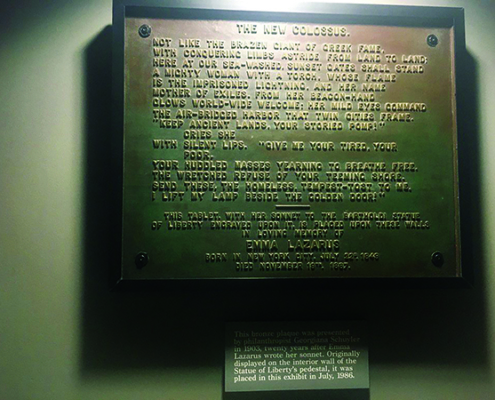
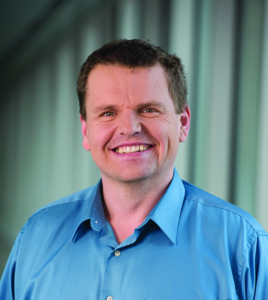
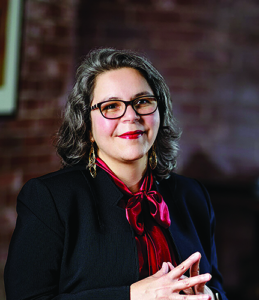
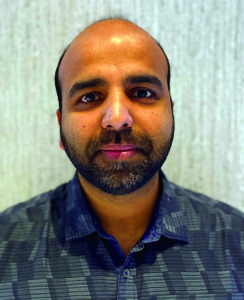
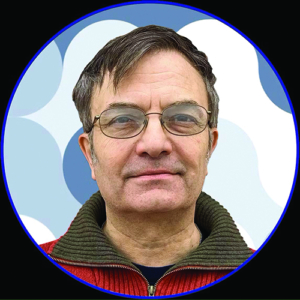
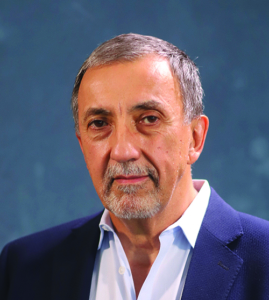
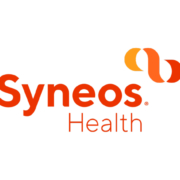
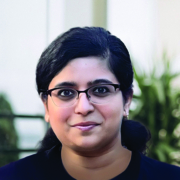




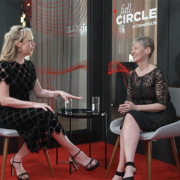

 Reuters
Reuters